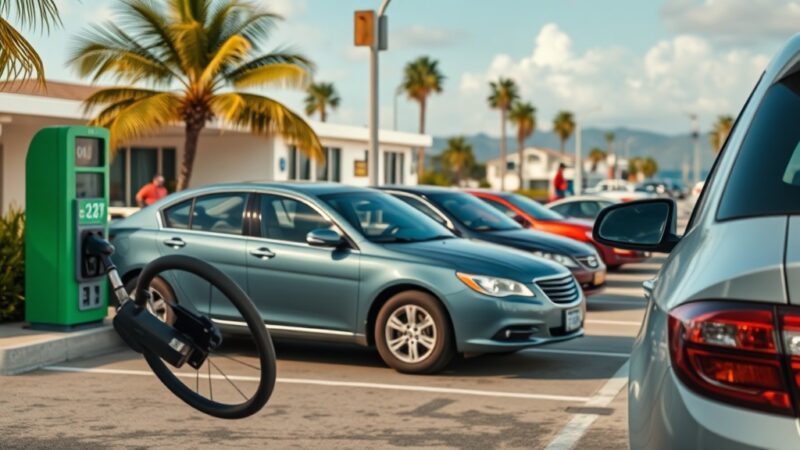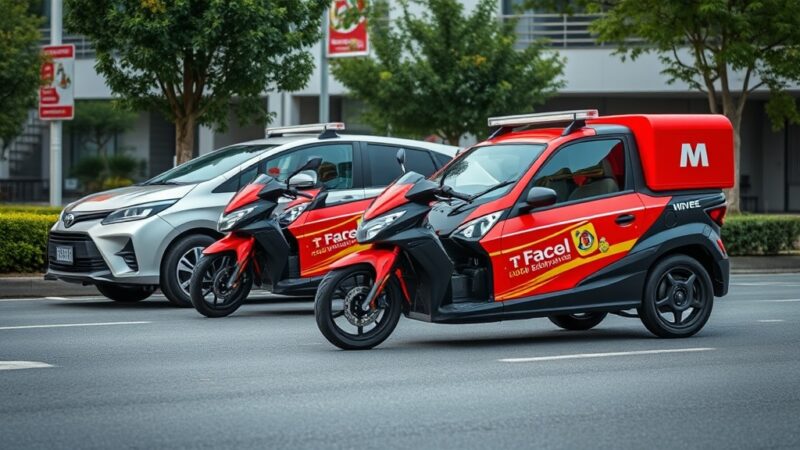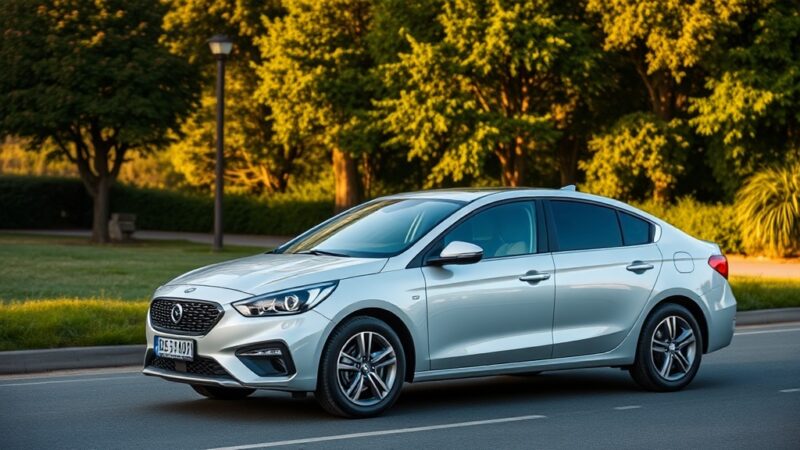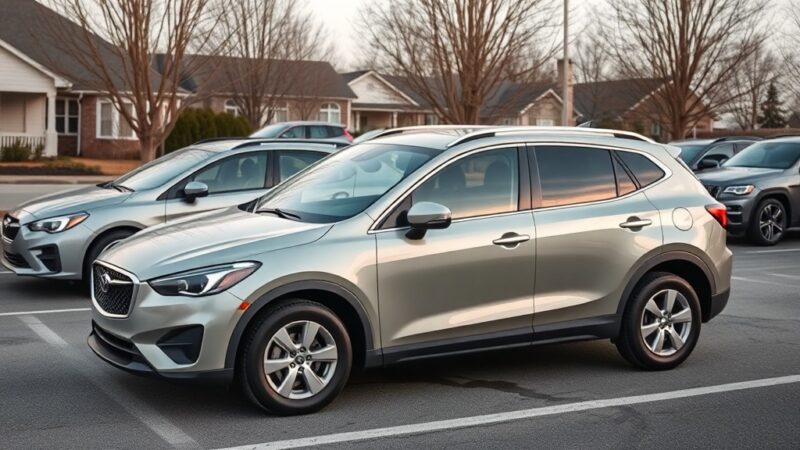Exploring the Most Fuel Efficient Car Choices for Environmentally Conscious Drivers
In today’s world, being an environmentally conscious driver means making smart choices, especially when it comes to selecting a fuel-efficient vehicle. There are several options available that not only reduce your carbon footprint but also save you money at the gas pump. Here, we will explore some of the best fuel-efficient choices for drivers who care about the planet.
Top Fuel-Efficient Car Categories
When looking for the most fuel-efficient cars, consider these categories:
- Hybrid Cars: Combine a traditional internal combustion engine with an electric motor. They are known for their excellent fuel economy and lower emissions.
- Plug-in Hybrid Electric Vehicles (PHEVs): These cars offer the flexibility of running on electricity for short trips and gasoline for longer journeys.
- Battery Electric Vehicles (BEVs): Fully electric cars that produce zero tailpipe emissions. They rely solely on battery power.
- Super Fuel-Efficient Gasoline Cars: Some gasoline-powered cars achieve impressive miles per gallon (MPG) without hybrid technology.
Hybrid Cars
Hybrid vehicles are a popular choice among eco-conscious drivers due to their great balance of power and efficiency. Here are some top hybrid models:
| Model | MPG (City) | MPG (Highway) | Combined MPG |
|---|---|---|---|
| Toyota Prius | 54 | 50 | 52 |
| Honda Insight | 55 | 49 | 52 |
| Hyundai Ioniq Hybrid | 58 | 60 | 59 |
These models not only provide remarkable fuel efficiency but also contribute to lower greenhouse gas emissions, making them a smart choice for the environment.
Plug-in Hybrid Electric Vehicles (PHEVs)
PHEVs offer the best of both worlds: you can drive on electricity for short distances, reducing your fuel consumption. If your daily commute is within the electric range, you can often charge at home and use little to no gasoline.
| Model | Electric Range (miles) | Combined MPG |
|---|---|---|
| Toyota RAV4 Prime | 42 | 94 MPGe / 38 MPG |
| Honda Clarity PHEV | 47 | 110 MPGe / 42 MPG |
With PHEVs, you can enjoy the flexibility of a traditional gasoline engine when necessary, while still benefiting from electric vehicle advantages.
Battery Electric Vehicles (BEVs)
For those who truly want to minimize their environmental impact, BEVs are the ideal choice. Here are some leading models:
| Model | Range (miles) | MPGe |
|---|---|---|
| Tesla Model 3 | 358 | 138 |
| Hyundai Kona Electric | 258 | 120 |
| Nissan Leaf | 226 | 113 |
BEVs are becoming increasingly popular, offering not only environmental benefits but also leading-edge technology and performance features. With zero emissions, they are perfect for urban environments and contribute significantly to cleaner air.
Super Fuel-Efficient Gasoline Cars
If you prefer traditional gasoline cars, there are still many models that provide excellent fuel economy. Here are some examples:
- 2023 Honda Civic: With up to 42 MPG on the highway, this compact car is stylish and economical.
- 2023 Toyota Corolla: Known for reliability, the Corolla can get around 39 MPG on the highway, making it a budget-friendly option.
- 2023 Mazda3: Offers a fun driving experience while achieving up to 36 MPG, blending performance with efficiency.
Choosing a fuel-efficient car is a significant step toward reducing your environmental impact. Whether you prefer a hybrid, plug-in, or fully electric vehicle, you can find options that align with your eco-friendly values while also ensuring you save money on fuel. Embrace these eco-conscious car choices and contribute to a cleaner, greener future.
The Benefits of Driving Green: How Fuel Efficiency Impacts the Environment
Driving a green vehicle comes with numerous advantages that go beyond just your wallet. When you choose a fuel-efficient car, you’re making a positive impact on the environment. The way your vehicle interacts with the climate and air quality is significant, and understanding these effects can encourage more environmentally-conscious choices.
One of the most direct benefits of driving a green car is the reduction in greenhouse gas emissions. Traditional gasoline vehicles release significant amounts of carbon dioxide, a major contributor to global warming. In contrast, fuel-efficient vehicles, particularly hybrids and electric cars, emit far less carbon dioxide. This shift results in a cleaner atmosphere and less severe climate change effects.
Additionally, these vehicles often achieve higher miles per gallon (MPG) ratings, which means they use less fuel. This efficiency not only conserves natural resources like oil but also limits the harmful emissions produced during fuel extraction, refining, and distribution. You do your part for the environment every time you fill up less frequently.
Moreover, fuel-efficient cars improve air quality. Traditional vehicles release pollutants that can lead to smog formation and respiratory problems. By opting for greener models, you help reduce particulate matter and volatile organic compounds in the air. Cleaner air means healthier communities that can lead to fewer cases of asthma and other respiratory illnesses. Think about the health of your family and friends; your vehicle choice can create a significant difference in public health.
Another noteworthy benefit is the potential for cost savings. While the initial price tag of a hybrid or electric vehicle might be higher, the long-term savings can offset that investment. With lower fuel consumption, drivers often find that they spend significantly less on gas over time. Additionally, some regions offer tax incentives or rebates for purchasing eco-friendly vehicles, further lowering the overall cost.
Here are some crucial reasons why fuel efficiency is vital for environmentally conscious drivers:
- Reduced emissions: Lower greenhouse gases reduce global warming.
- Conservation of resources: Less fuel consumption helps in conserving oil and other fossil fuels.
- Improved air quality: Fewer harmful pollutants lead to cleaner air.
- Cost savings: Reduced fuel consumption equals more money in your pocket.
- Support for renewable energy: Electric vehicles can be powered by renewable sources, further minimizing environmental impact.
When considering various options, fuel-efficient vehicles include hybrids, plug-in hybrids, and fully electric models. They all contribute to less reliance on fossil fuels and demonstrate a commitment to a sustainable future. Below is a simple chart illustrating the average MPG of several popular eco-friendly cars:
| Car Model | Type | Average MPG |
|---|---|---|
| Toyota Prius | Hybrid | 56 |
| Honda Insight | Hybrid | 52 |
| Tesla Model 3 | Electric | N/A |
| Hyundai Ioniq | Hybrid | 58 |
Opting for a fuel-efficient vehicle also sends a powerful message to car manufacturers. As consumer demand shifts towards greener options, companies are more likely to invest in developing environmentally-friendly technologies. Your choice adds pressure for businesses to act responsibly, encouraging innovation and the production of increasingly sustainable vehicles.
Driving a green car addresses many environmental challenges we face today. The collective impact of these choices is profound. Each time you decide to drive fuel-efficient vehicles, you are contributing to a healthier environment, better public health, and a more sustainable future. You have the power to make a difference, one mile at a time. Embrace the benefits of driving green, and inspire others to follow suit!
Conclusion
Choosing the most fuel-efficient car is not just about saving money; it’s about making a positive impact on the environment. As you’ve discovered, driving green can significantly reduce your carbon footprint, helping to combat climate change and preserve natural resources for future generations. By opting for cars with higher fuel efficiency, you contribute to cleaner air, lower greenhouse gas emissions, and less reliance on fossil fuels.
With the variety of fuel-efficient options available today—ranging from hybrid options to electric vehicles—you have the power to select a vehicle that aligns with your values and lifestyle. These choices not only promote sustainability but often come with the added benefits of lower maintenance costs and potential tax incentives or rebates. Embracing fuel efficiency can lead you to join a growing community of environmentally conscious drivers who prioritize the planet’s health alongside their own well-being.
Efforts to drive green can create a ripple effect, inspiring friends and family to reconsider their own transportation choices. Each step toward fuel-efficient driving creates a more sustainable future, proving that individual choices matter. As you weigh your options, remember that every mile you drive in a fuel-efficient vehicle plays a role in shaping our environment. By making informed decisions today, you are investing in a cleaner and greener tomorrow for everyone. So go ahead—drive smart, choose wisely, and make a significant difference!







